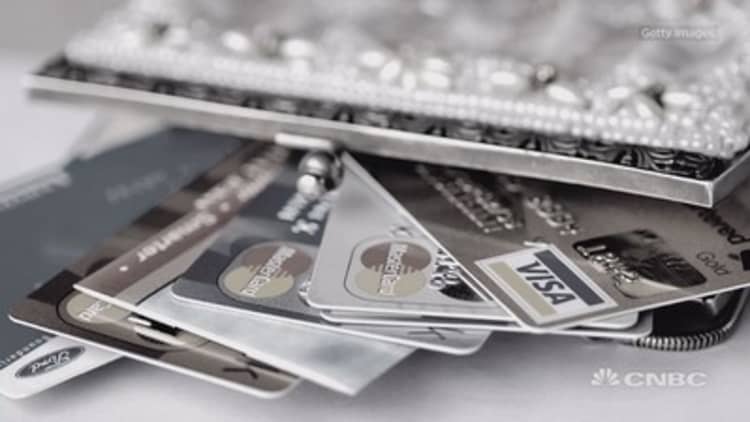
While the Federal Reserve's plans for raising interest rates are still up in the air, it's time for consumers to get their financial house in order.
Any increase in the federal funds rate will have an impact on products as varied as mortgages and home equity lines of credit, car loans and credit card offers. Some could rise faster than others.
Read MoreWhat an interest rate hike could mean for your money
While there are some concrete steps you can take to position yourself (check out the video above for a few ideas), experts say one of the most important is to boost your credit score. Under the widely used FICO scoring model, that three-digit number can range from 300 to 850, with the higher score, the better. It's what lenders use as a measure of your creditworthiness to approve loans and set interest rates.
"Regardless of what the Fed does and what happens to rates in response to whatever the Fed does, the interest rate you're going to be paying is still largely based on the quality of your credit," said John Ulzheimer, president of consumer education for CreditSesame.com. While you can't stop the rate on your variable-rate credit card from rising with that rate hike—that's why it's called a variable rate—a better score could help you qualify for a card with a lower base rate or a longer-term zero percent introductory offer.
Raising your score is also the smarter strategy if a big-ticket purchase is on the distant horizon. "I don't think you buy a house before you're truly ready, just because rates are increasing," said Greg McBride, senior financial analyst for Bankrate.com. Or buy a car before you need one. "A full percentage-point rate increase adds maybe $12 a month to your auto payment," he said. "Nobody is going to downsize from the sedan to the compact on the basis of $12 a month. You don't need to rush that decision by any means."
Read MoreThe fine print: What's in your credit report?
Improving a score can yield big savings. For example, according to FICO, a consumer with a credit score of 700 to 759 (the second-best rate bucket) could get an average rate of 3.78 percent on a 30-year fixed-rate mortgage, while someone scoring 660 to 679 would pay 4.18 percent. On a $200,000 mortgage, that's an extra $16,209 in interest over the life of the loan.
"Be reasonable with your expectations," said Ulzheimer. How much improvement you might see in a score over six months or so depends on what's dragging it down now. A bankruptcy, for example, won't be something you can rebound from in such a short amount of time. But how much you owe, a factor that accounts for 30 percent of your score, is more easily fixable. "If you can lower your debt, you could see improvement even in a month," he said.
Another must-do: Get copies of your credit report from each of the three major bureaus and scan them for inaccuracies. A 2013 Federal Trade Commission study found that 20 percent of consumers identified errors on their reports that might affect their score, and 5 percent had an error significant enough that it could result in their paying higher loan rates. Errors can take time and effort to remove, so it's worth getting that early head's up to allow time for the fix—and the resulting credit score change.


